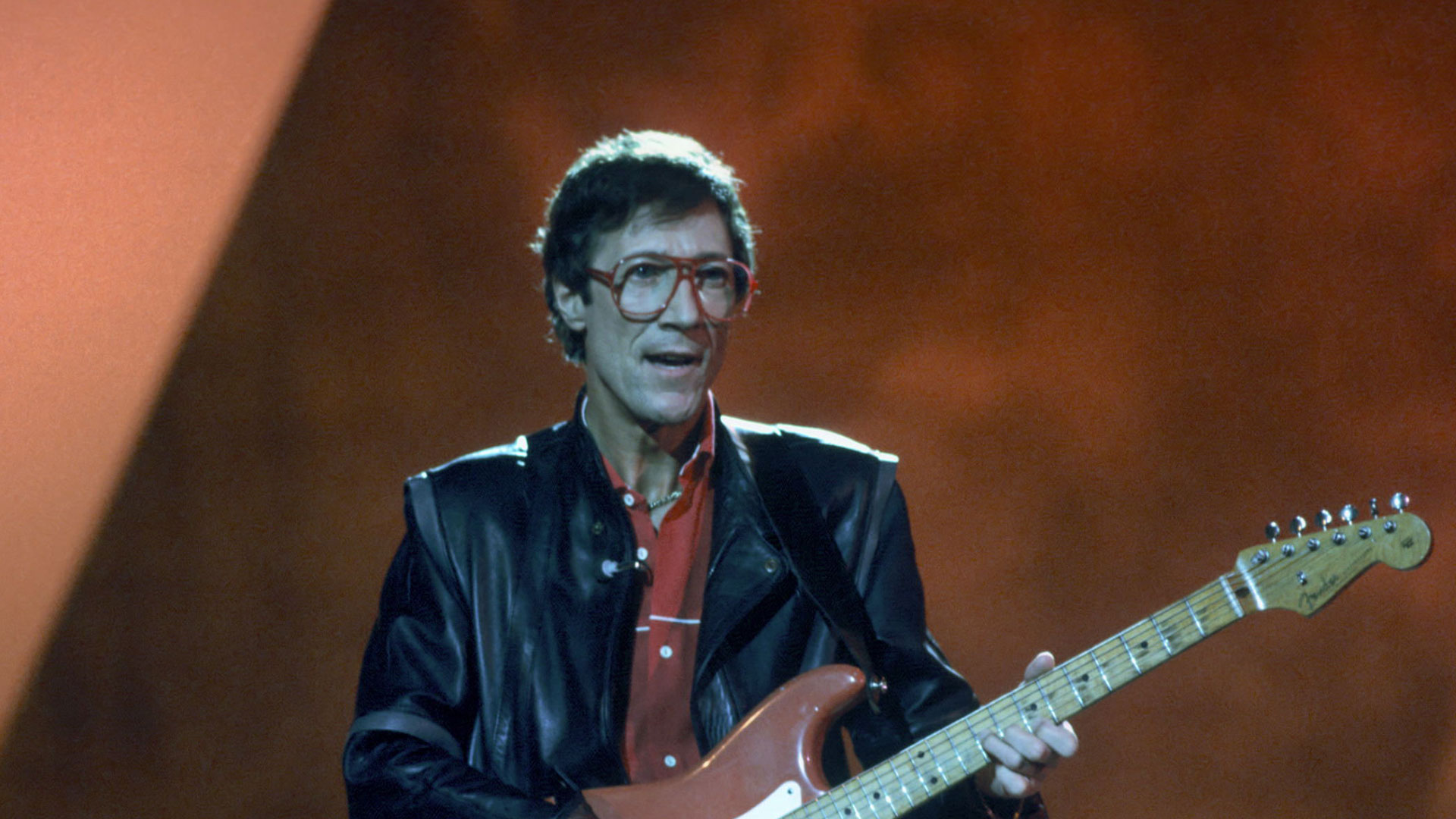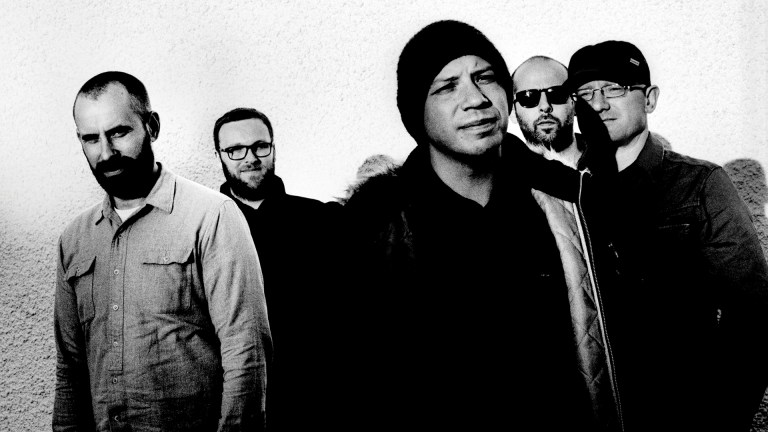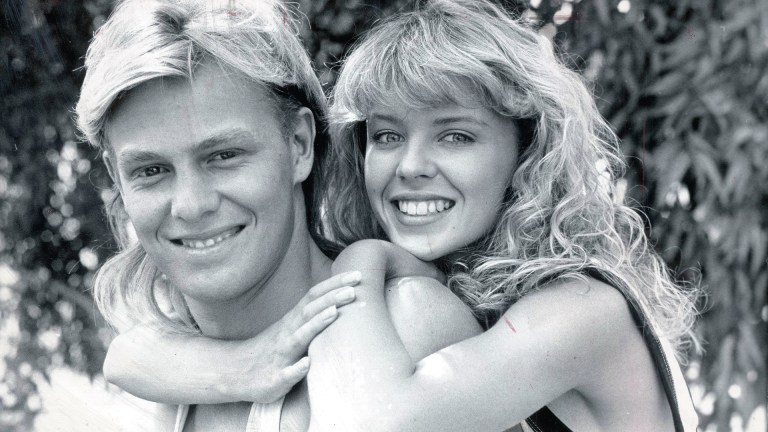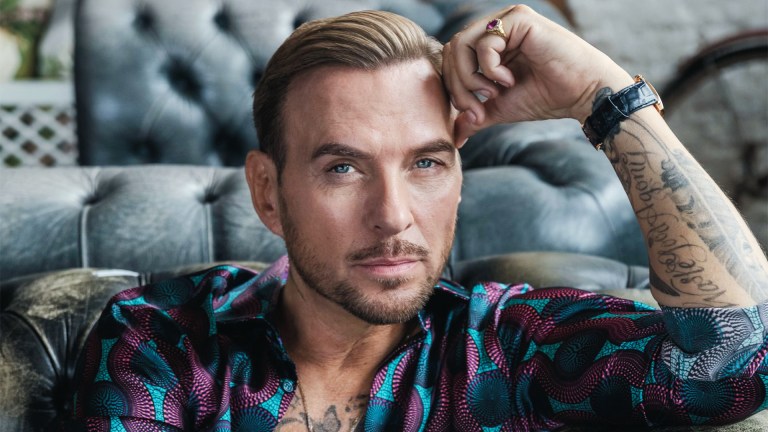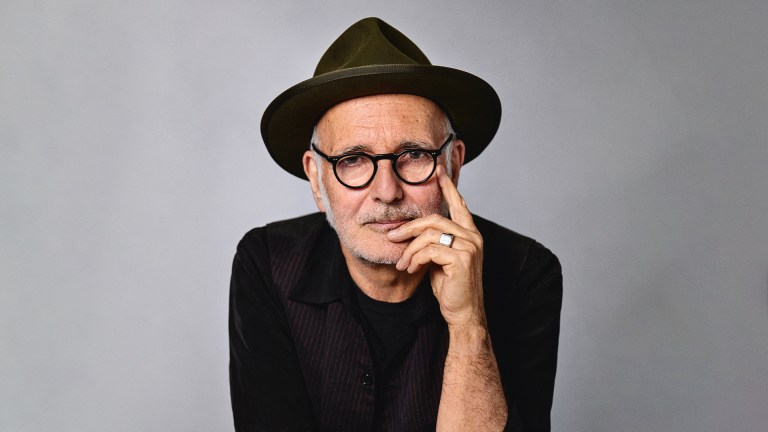By the age of 16 I was besotted with music; blues and trad jazz. I actually wanted to play the clarinet but I couldn’t afford one, so I bought a banjo from a school teacher for £2, 10 shillings and I paid him half a crown a week. I still have that banjo on the wall of my study. I then borrowed a guitar and practised playing quite a bit, trying to remember rock’n’roll tunes I’d heard on the Alan Freeman show on Radio Luxembourg – Chuck Berry, Fats Domino, Elvis Presley. I joined a skiffle group that was actually making money going round working men’s clubs. Before that my own band had played youth clubs for a cup of tea and a biscuit.
When I first saw pictures of Buddy Holly wearing glasses, it was, thank you Buddy!
I first found out when I was nine that I needed glasses and I was very embarrassed and upset. I was a young, skinny kid with acne, not confident at all. The day I got my glasses – big round metal and tortoiseshell NHS glasses – I hid in a washhouse round the corner from school so I wouldn’t have to go in wearing them. I got all the names: specky, four-eyes. When I first saw pictures of Buddy Holly wearing glasses, it was, thank you Buddy! Interestingly, within the first few months of working with Cliff Richard in 1959, this great guitarist called Denny Wright took me aside and said, can I give you some advice Hank? Do not wear your glasses onstage. It’s unprofessional. I told him I was so blind I’d fall offstage but he said, that doesn’t matter. But I knew I’d feel extremely vulnerable without them and hey, if Buddy Holly can do it, and Eric Morecambe can do it, it’s okay for me.
My parents felt mixed about my moving to London when I was 16. My father had been in the forces away from home for much of my childhood so I hardly saw him. He was a decent man but quite quiet; I don’t think he was able to express his emotions. My mother was much more open, not well educated but very smart. I was closer to her. And we were able to talk. I convinced them moving to London was essential if I was going to give the music business a try. They were very sad to see me go but they understood. We left in April 1958, we met Cliff in September and joined him on tour right away. So when we went back to Newcastle we were playing to audiences of screaming girls. My mum told me how proud she was all the time. My dad sort of said it without words.
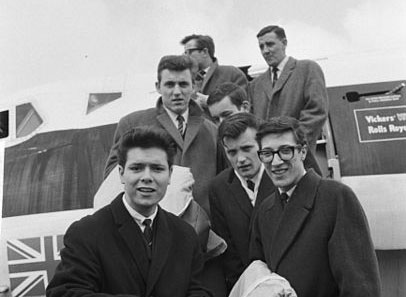
Cliff [Richard] and I first met in Soho. He was having a fitting for this bright pink jacket – incredible, this rock’n’roll jacket – and we met at his tailor’s. We shook hands and sized each other up. Then we got a bus back to his parents’ house, where he was rehearsing. So we had an hour on the bus talking about music and things we liked. We had so much in common, it was fantastic. We had this rehearsal and he was really happy with what we were doing. And we thought he was great. And that was it, bang! We were a band.
I think Cliff and I are alike in many ways. Cliff isn’t a guy who makes waves with people, he’s very reasonable, treats people with respect. He had three sisters so he always had respect for women. He had good manners with everyone. And I’d been brought up the same way. But at the same time, he can be stubborn. If he has an idea, he’ll push it through. He has great strength of character.
